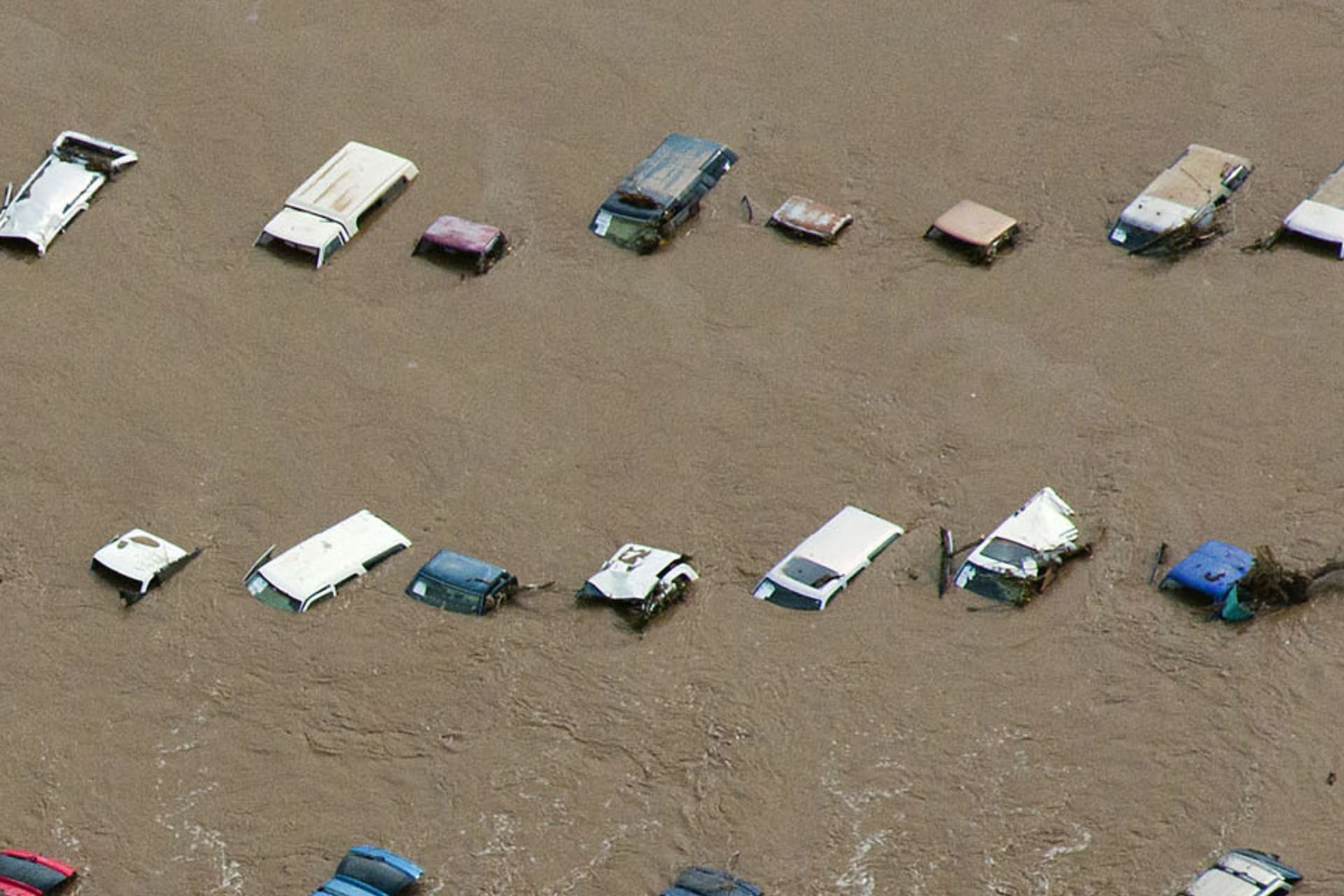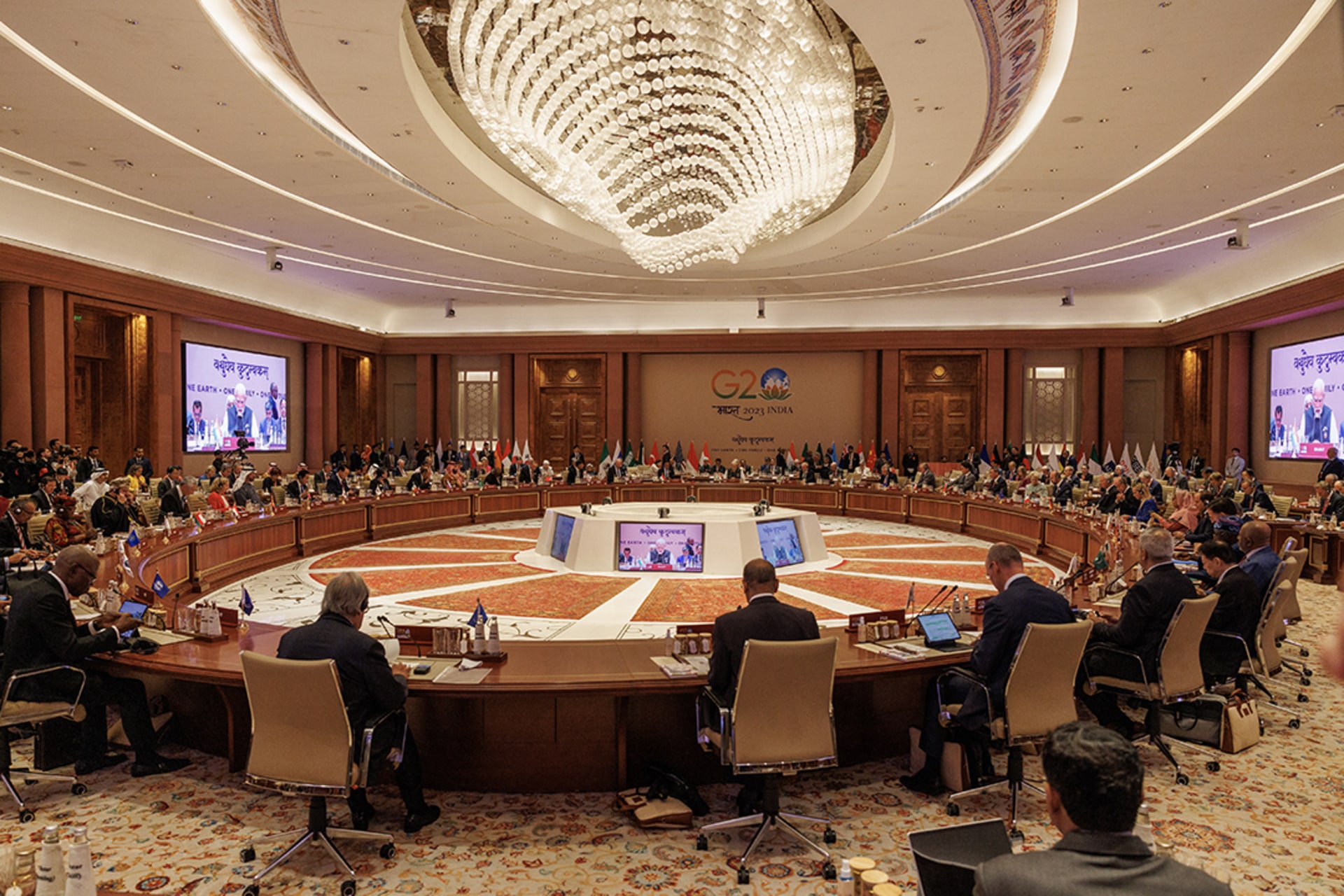The Palestinian Authority’s Government
Published
Palestinian voters will elect a new Legislative Council on January 25. cfr.org offers a brief primer on the workings of the Palestinian Authority government.
This publication is now archived.
How does the Palestinian government work?
The Palestinian Legislative Council, the congress of the Palestinian Authority (PA), was created by the Oslo Peace Accords in 1993. It was meant to give legitimacy to the Palestinians and was slated to be replaced by an elected assembly no later than 1999. Presidential elections were held in 1995—Yasir Arafat won—and legislative elections took place in early 1996 to fill the eighty-eight council seats. However, the Oslo process collapsed, the second intifada began in 2000, and legislative elections were postponed until January 2005. On January 25, Palestinians will vote for representatives to sit on the Legislative Council, expanded to 132 seats to be more representative.
How will seats on the Legislative Council be allocated?
Half of the seats are given to parties based on the overall percentage of the vote they win in the legislative elections. The parties then fill these seats off their slates—or lists—of candidates. The remaining seats are allocated by district. The Islamist group Hamas, which made strong gains in municipal elections in 2005, is expected to do particularly well winning district seats.
How are the leadership positions filled?
The president, who is elected, appoints a prime minister; the prime minister then chooses a cabinet. The cabinet members must be approved by an absolute majority—sixty-seven votes—in the Legislative Council. There have been two presidential elections in the history of the PA: the vote Arafat won in 1995, and the January 2005 poll that brought current President Mahmoud Abbas to power after Arafat’s death in November 2004. Formerly, only Legislative Council members could be appointed to the cabinet, but this requirement will likely be changed, says Nabil Abuznaid, political counselor to the Palestinian Liberation Organization [PLO] mission in Washington. This sets up some interesting calculations by politicians, experts say. Former Prime Minister Ahmed Qurei resigned his Legislative Council seat this winter, possibly to position himself for a cabinet post in the new government.
Who is eligible to vote?
Palestinians living in the occupied territories, including Gaza, the West Bank, and East Jerusalem. Palestinians living overseas are not eligible to vote, although Palestinians living in refugee camps within the PA territories are. Some 1.3 million Palestinian voters are registered for Wednesday’s poll, up from 1.1 million for the presidential election last January, says Ben Fishman, a researcher who has studied the Palestinian electoral process at the Washington Institute of Near East Policy.
What kind of turnout is expected?
Some experts say 80 percent or more of eligible Palestinians may vote, even higher than the 70 percent who voted in last January’s presidential poll. Hamas members are particularly excited, experts say. Hamas boycotted the 1996 elections in protest against the Oslo accords, but ran its members in municipal elections in 2005 with great success. “This is the first nationwide election in which Hamas members are both running and voting,” Fishman says. “Their members are energized.” Hamas members see the polls as a way to gain legitimacy both domestically and abroad, he says.
Other experts say Palestinians will vote as much against Fatah as for Hamas. “People are protesting what Fatah has been doing—[they’re] not that crazy about Hamas’ political agenda,” Abuznaid says. He says many Palestinians look at their situation today—curfews, roadblocks, economic stagnation—and blame Fatah. “You’ll see more of a protest vote than [a vote for] the Hamas agenda,” Abuznaid says.
People are protesting what Fatah has been doing—[they’re] not that crazy about Hamas’ political agenda,“ Abuznaid says. ”You’ll see more of a protest vote than [a vote for] the Hamas agenda,“ Abuznaid says.
What makes Hamas’ prospects so good?
People are tired of the suffering and corruption they have experienced during a decade of Fatah rule. “There’s disenchantment with the Palestinian Authority as a whole,” Fishman says. Hamas’ popularity is due in large part to the group’s effectiveness at the municipal and local levels. The group provides services like child care and pensions to Palestinians while earning a reputation as being honest, in contrast to the corruption rampant in Fatah. Hamas members elected to the Legislative Council will be expected to perform at a similar level.
On the other hand, some experts are worried about a victory for Hamas, which is pushing a strongly Islamist agenda that could include banning alcohol and separating girls from boys in schools. “There are new faces, but we don’t know how they feel about building a state, or if their religious agenda is more important,” Abuznaid says. He says the candidates on both slates—who include radicals, religious leaders, and militia members—are not necessarily the best people to build a society. “We are in a situation where we have to set laws,” he says. “I would have preferred more university graduates and fewer prisoners.”
Who are Fatah’s most appealing candidates?
The group’s slate features some prominent new faces: the tremendously popular imprisoned leader Marwan Barghouti at the top of the Fatah list. He leads an ascendant faction of the Fatah young guard, who have been agitating to take over the PA from Arafat’s cohort. Those men, including Abbas, are now in their sixties and seventies. They advanced the PLO agenda for decades from overseas exile but now are seen as out of touch, corrupt, or incompetent. A young guard threat to split away from Fatah and create a separate party was resolved by adding Barghouti to the main Fatah slate. “They said, ’The old guys from Tunis are not good enough candidates to beat Hamas,’” says David Makovsky, director of the Project on the Middle East Peace Process at the Washington Institute on Near East Policy.
What will be the duties of the new Legislative Council?
The new council will be expected to provide concrete improvements in education, healthcare, and the economy, experts say. In addition, the council will have an active say in determining the future of relations with Israel, including whether peace negotiations resume. While Hamas has made public statements saying they will not deal with Israel, Hamas members in power at the municipal level already work closely with Israeli officials on security and other issues. In any event, experts say few of the candidates elected to the new council will be holdovers from the last one. “We expect there’s going to be a lot of turnover,” says Makovsky. “It’s been a long time since [the last election in] 1996.”
We expect there’s going to be a lot of turnover,“ says Makovsky. ”It’s been a long time since [the last election in] 1996.
Where does the PA government get its funding?
From a combination of overseas assistance and tax collection, Abuznaid says. He estimates that taxes—from businesses in the territories, as well as a customs tax collected by Israel and then paid to the Palestinians—account for about 40 percent of the PA budget. Donations from abroad make up the rest. The PA has run into budget trouble lately, running a massive deficit and sparking the wrath of European donors by adding thousands of people to the security service instead of cutting costs. Experts say Fatah padded its payroll with young militants to win their votes ahead of the polls, and expect the PA will be unable to pay all their salaries after the elections. Since November 2005, the European Union has withheld $42 million in aid payments to the PA as punishment for missed fiscal targets.
Does the PA have any industry or trade?
Yes. The Gaza Strip exports flowers, strawberries, citrus fruits, and other agricultural products to Israel and beyond, experts say. The West Bank, for its part, has long provided laborers and construction supplies to Israel. The West Bank’s 2003 GDP was $1.8 billion, while the same figure that year for the Gaza Strip was $768 million. Some experts say the Palestinian economy has been devastated since the second intifada. This explains “why there’s such a system of government patronage and handouts,” says Nadia Hijab, senior fellow at the Washington-based Institute for Palestine Studies.
Is the PA officially recognized by other nations?
No. The PLO is the official foreign representative body of Palestinians, while the PA is the domestic governing body. The PA is recognized as a transitional government until a final settlement is reached, Abuznaid says. Close to 100 countries, including nearly every Arab or Muslim state, has recognized the Palestinian Authority. It has observer status, but not official state status, at the United Nations. t
Colophon
Staff Writers
- Esther Pan





